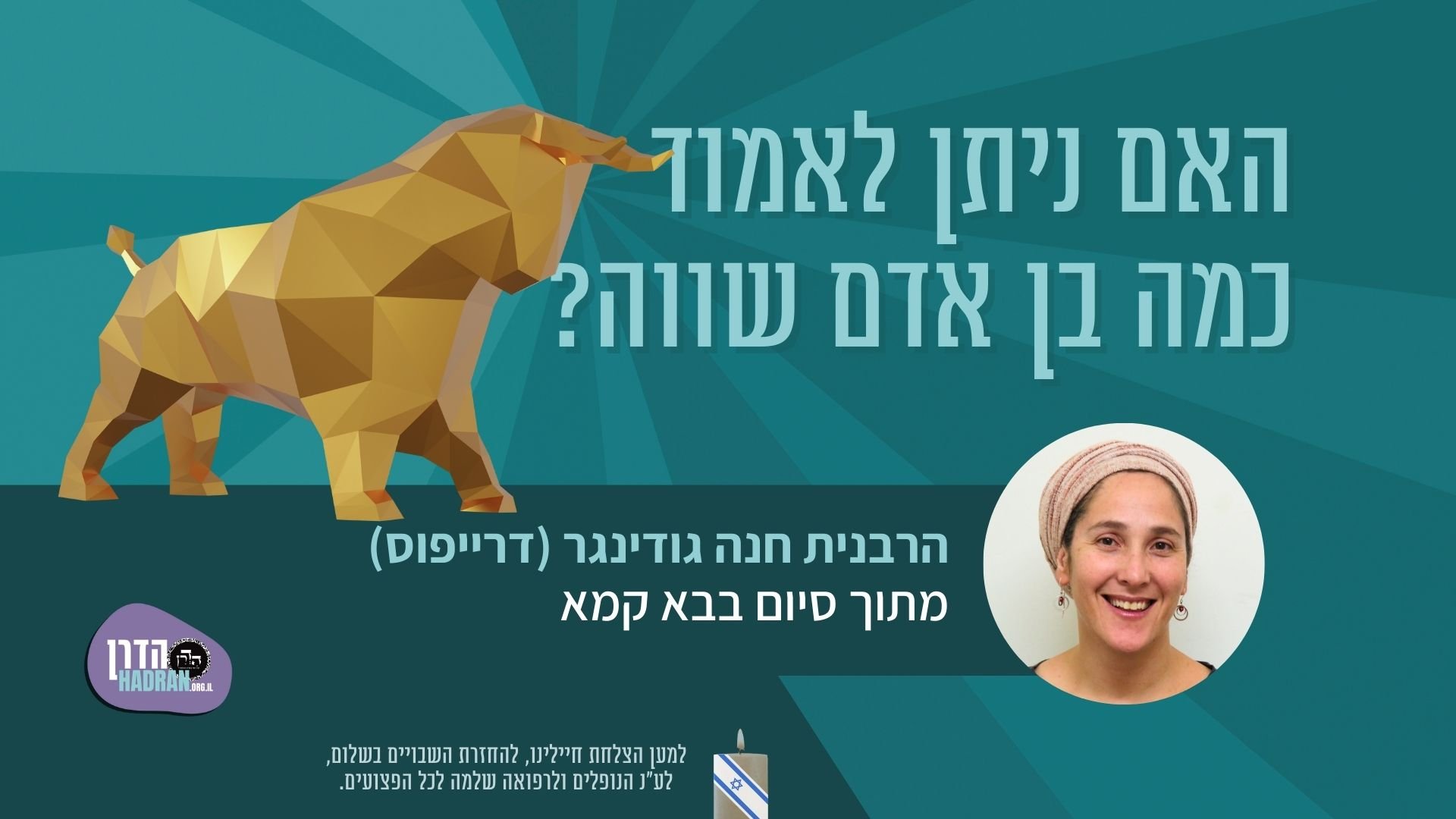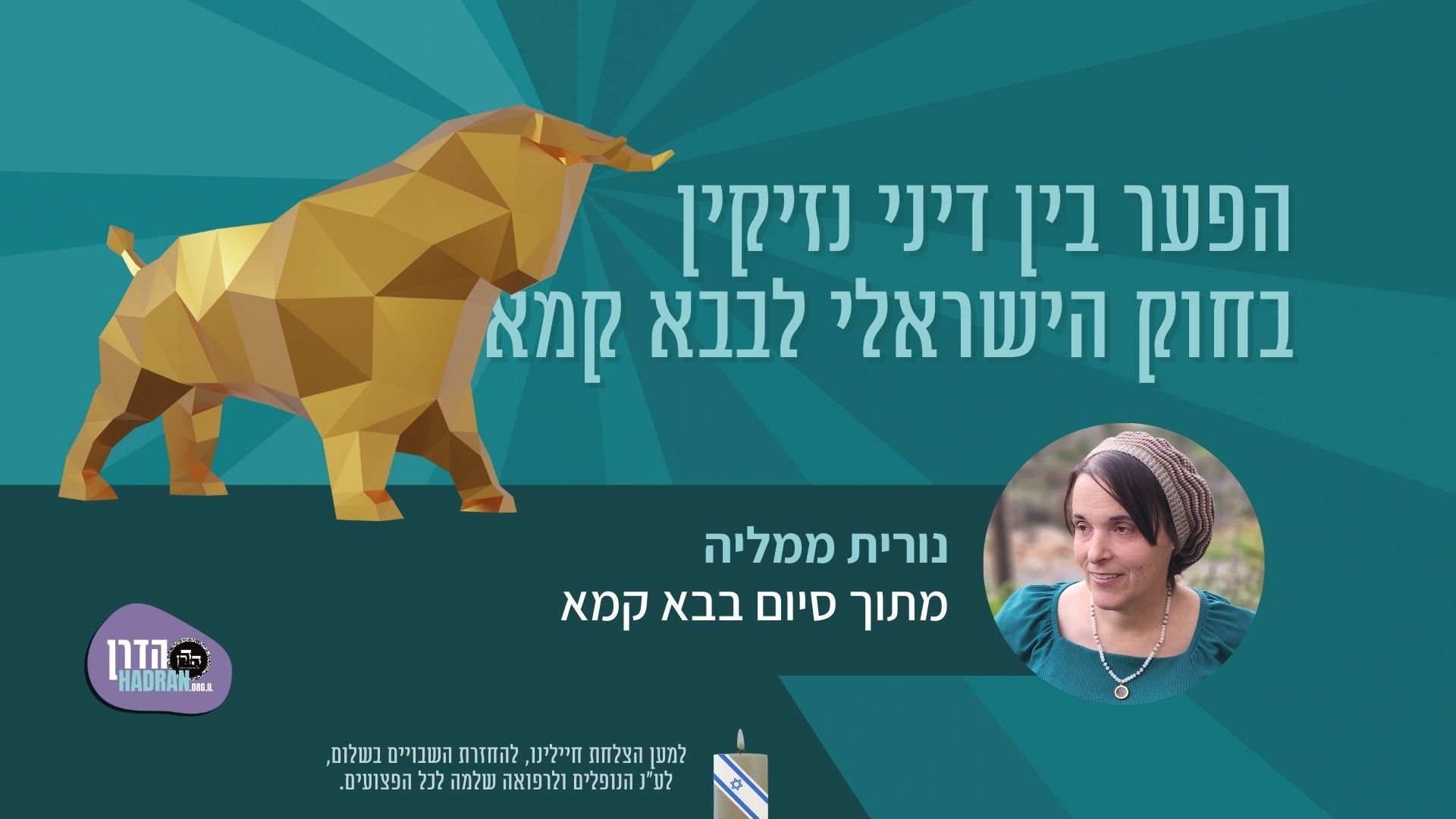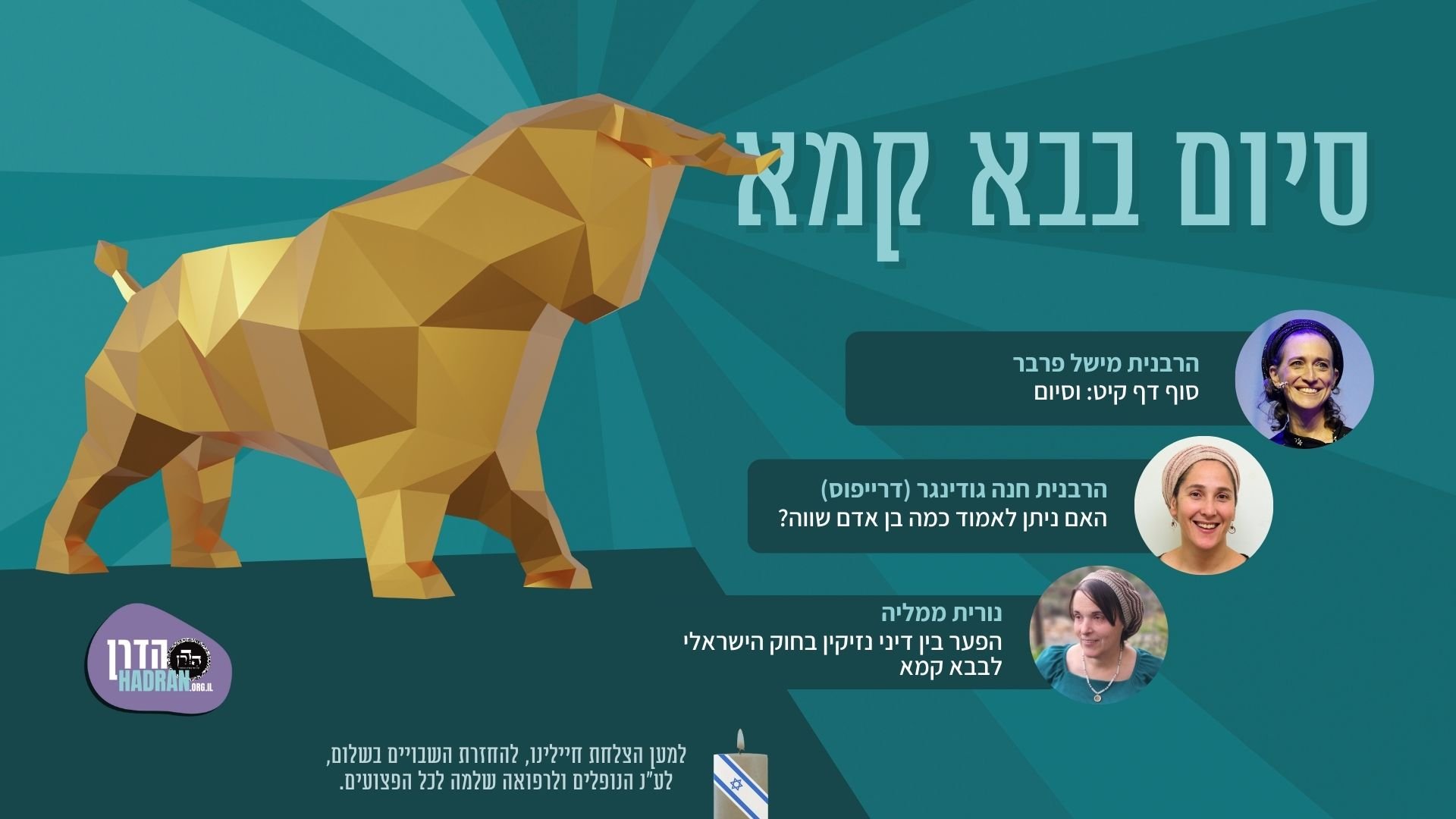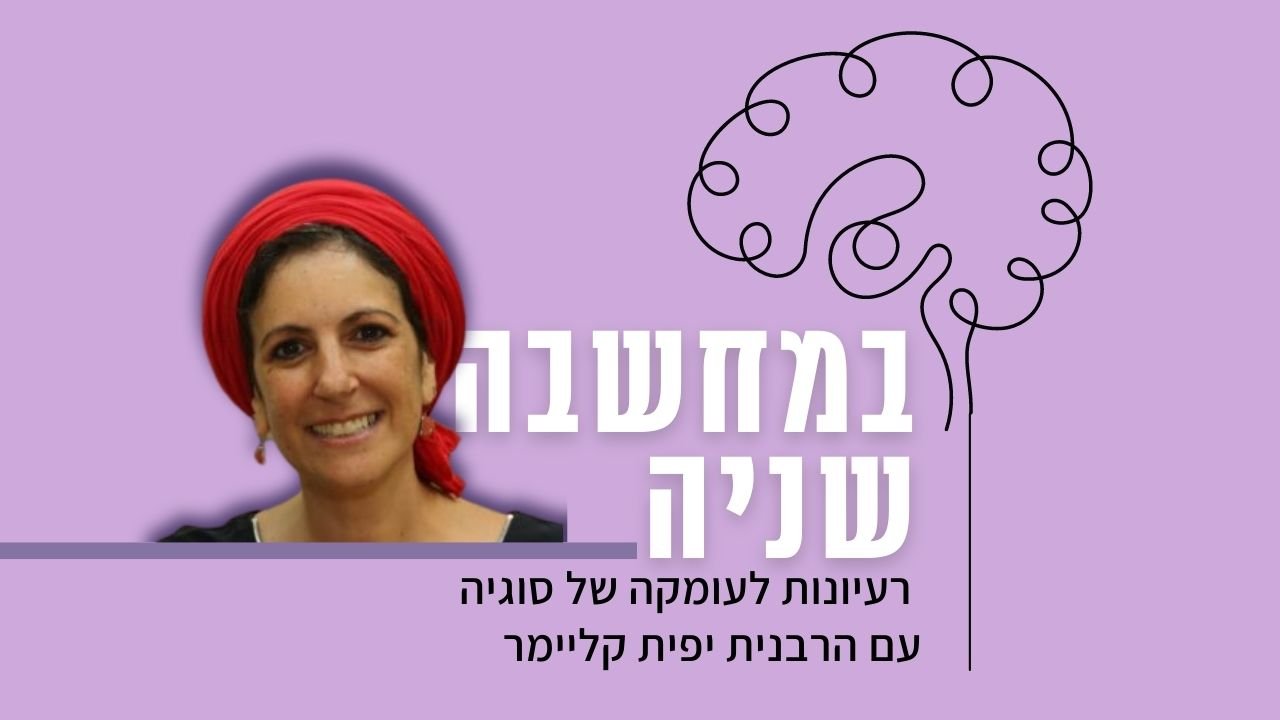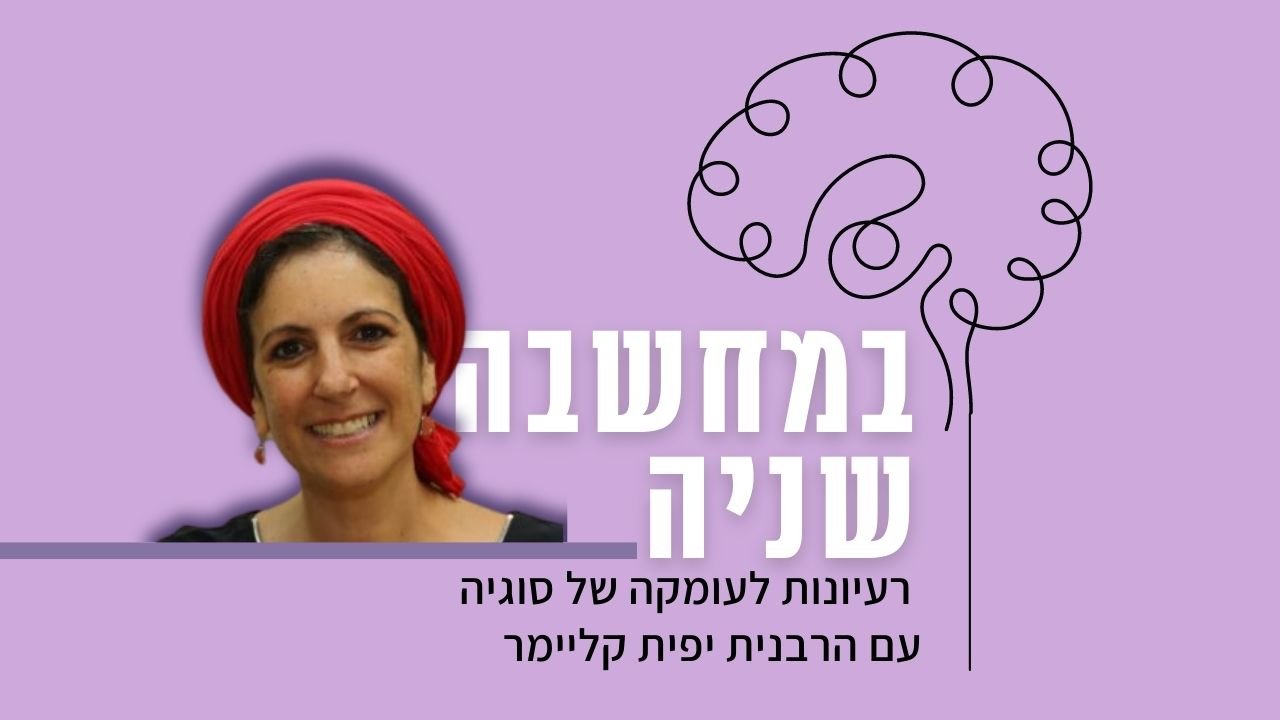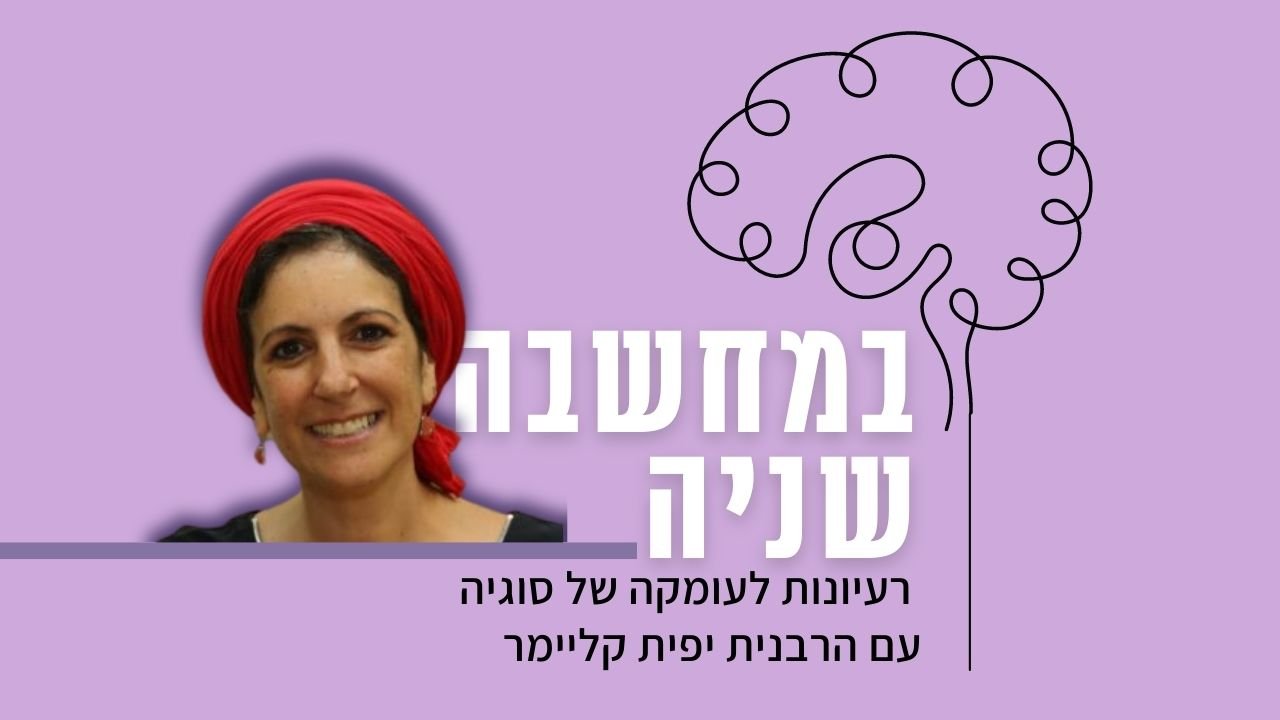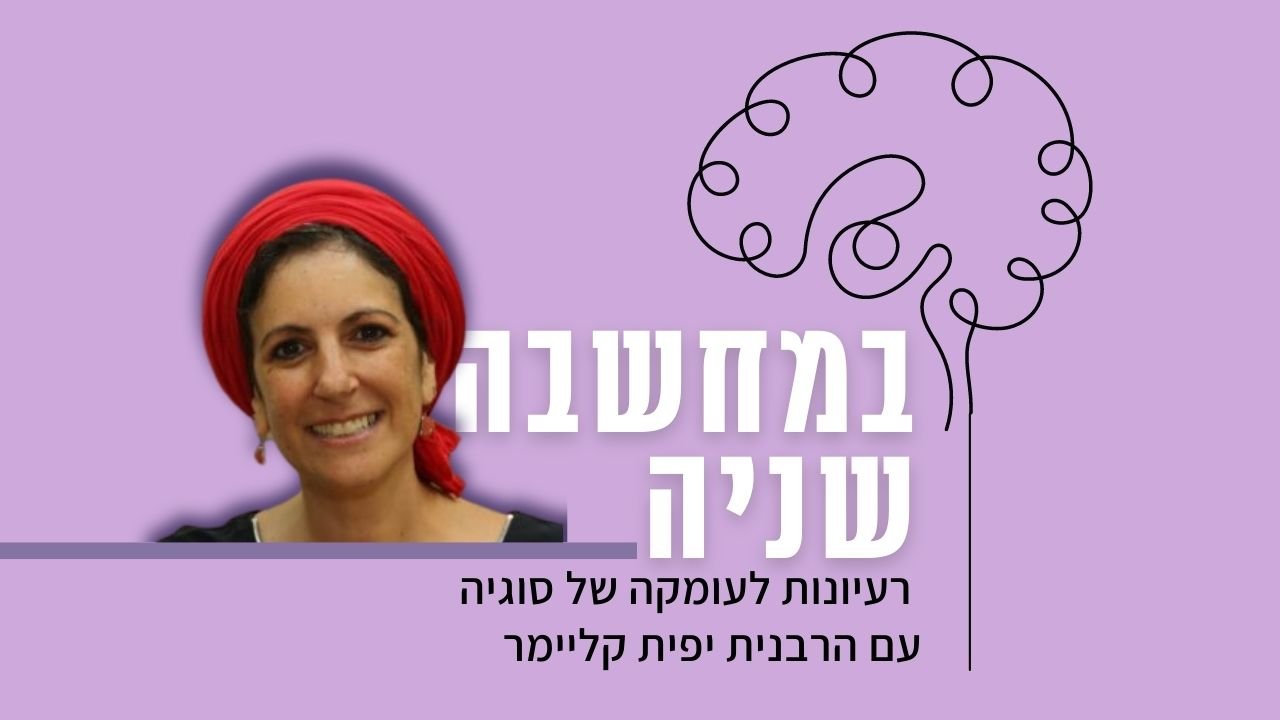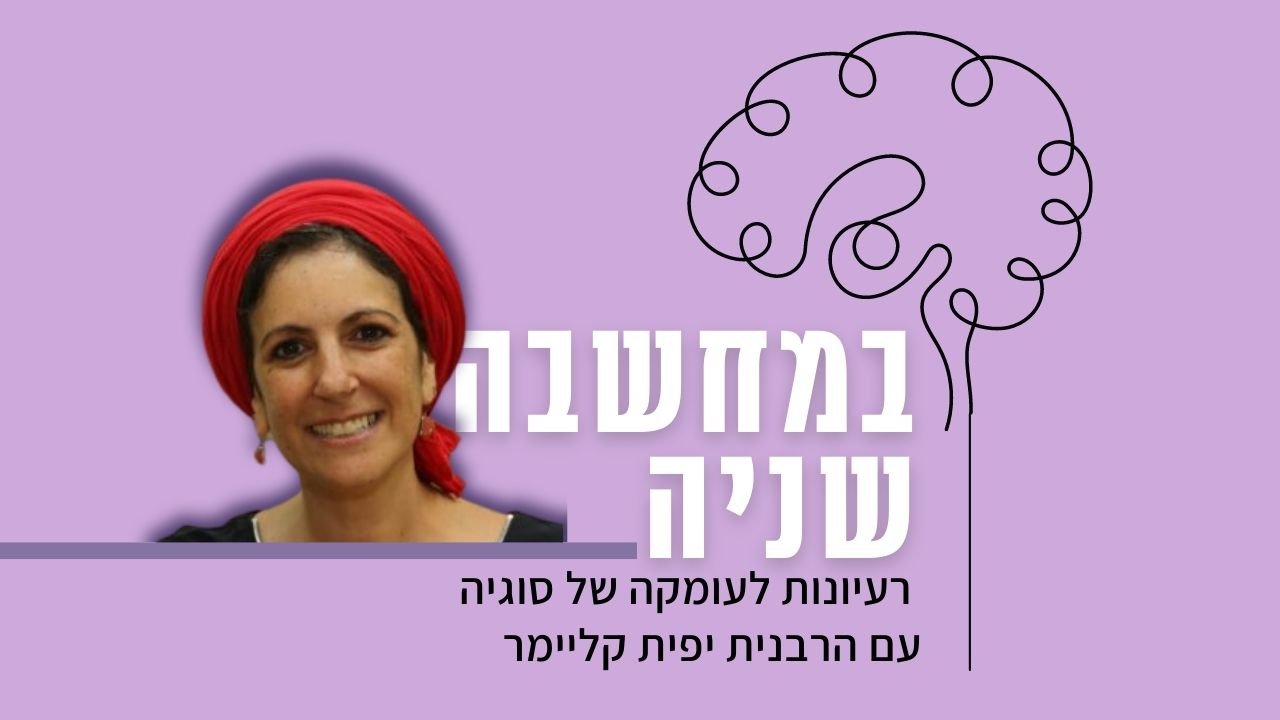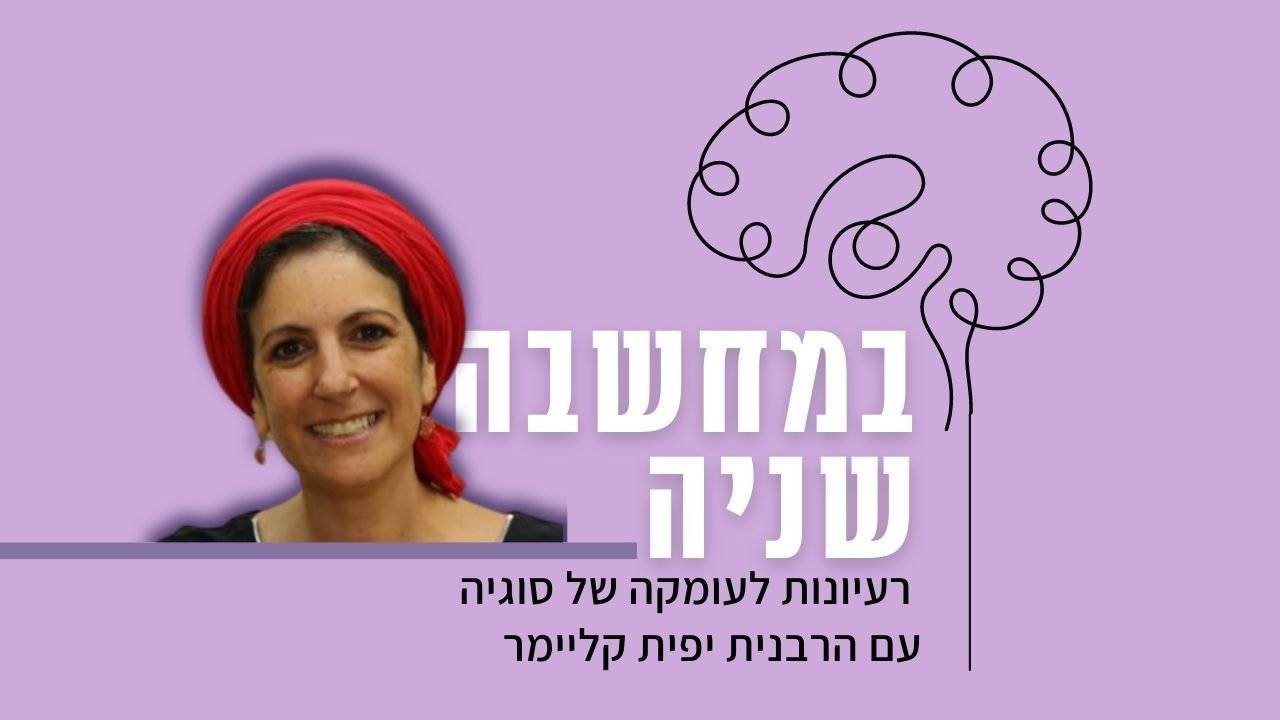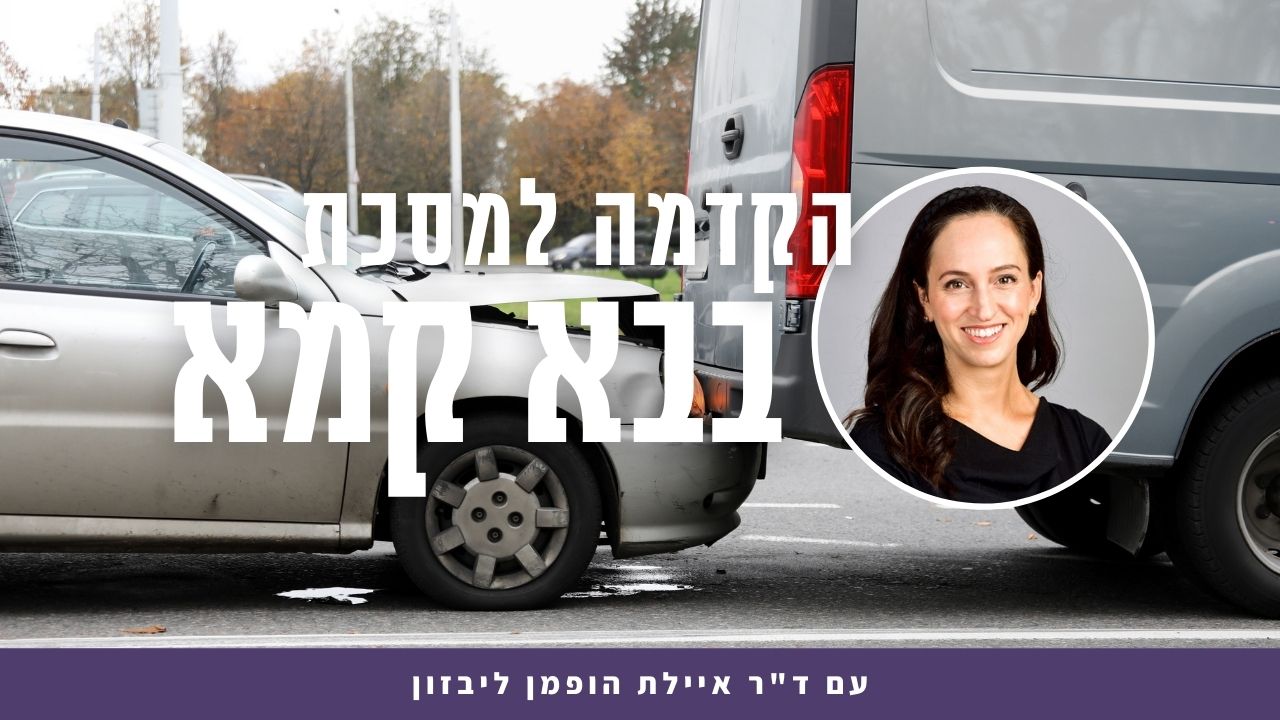בבא קמא כג
בְּנִזְקֵי מָמוֹנוֹ, וְסִיֵּים בְּנִזְקֵי גוּפוֹ; לוֹמַר לְךָ: אִשּׁוֹ מִשּׁוּם חִצָּיו.
with a reference to damage caused by one’s possessions, as it is written: “If fire breaks out,” indicating that his responsibility for the fire is the same as his responsibility for any of his possessions that cause damage, and it concludes with a reference to damage caused by one’s body, as the verse refers to the person by calling him “the one who ignited the fire,” telling you that his liability for the damage caused by his fire is due to its similarity to his arrows.
אָמַר רָבָא, קַשְׁיָא לֵיהּ לְאַבָּיֵי: לְמַאן דְּאָמַר אִשּׁוֹ מִשּׁוּם חִצָּיו, טָמוּן בָּאֵשׁ דִּפְטַר רַחֲמָנָא – הֵיכִי מַשְׁכַּחַתְּ לַהּ?
Rava said that Abaye raised a difficulty: According to the one who says that one’s liability for the damage caused by his fire is due to its similarity to his arrows, how can you find that the Merciful One exempted one from liability for concealed items damaged by a fire? If one caused damage by shooting an arrow, he would be equally liable for damaging both exposed and concealed items. Consequently, if one’s liability for the damage caused by his fire is due to its similarity to his arrows, he should similarly be liable for concealed items damaged by a fire.
וְנִיחָא לֵיהּ: כְּגוֹן שֶׁנָּפְלָה דְּלֵיקָה לְאוֹתוֹ חָצֵר, וְנָפְלָה גָּדֵר שֶׁלֹּא מֵחֲמַת דְּלֵיקָה, וְהָלְכָה וְהִדְלִיקָה וְהִזִּיקָה בְּחָצֵר אַחֶרֶת. דְּהָתָם – כְּלוּ לֵיהּ חִצָּיו.
And it was satisfactory for him, i.e., Abaye resolved the difficulty. He explained that the exemption from liability for concealed items damaged by a fire applies in a case where a fire broke out in that same courtyard, and afterward the fence separating this courtyard from the neighbor’s courtyard collapsed, but not due to the fire, and therefore the fire spread and ignited items and caused damage in another courtyard. In such a circumstance he would be exempt because there, in this case, it is as if his arrows were depleted, i.e., he bears responsibility for the fire that he had started, which initially was confined to his courtyard alone. The fire that spread to the neighboring courtyard is not similar to his arrows, and therefore he is exempt.
אִי הָכִי, לְעִנְיַן גָּלוּי נָמֵי כְּלוּ לֵיהּ חִצָּיו!
The Gemara challenges this explanation: If that is so, he should be exempt not only with regard to concealed items but also with regard to exposed items that were damaged by the fire, as his arrows are also depleted when the fire spreads and causes damage. If his exemption is due to fact that the damage was caused because the wall that had separated the two courtyards had collapsed, there should be no distinction between exposed and concealed items.
אֶלָּא לְמַאן דְּאִית לֵיהּ מִשּׁוּם חִצָּיו – אִית לֵיהּ נָמֵי מִשּׁוּם מָמוֹנוֹ; וּכְגוֹן שֶׁהָיָה לוֹ לְגוֹדְרָהּ וְלֹא גְּדָרָהּ; דְּהָתָם – שׁוֹרוֹ הוּא וְלָא טְפַח בְּאַפֵּיהּ.
Rather, it must be that the one who holds that one’s liability for the damage caused by his fire is due to its similarity to his arrows also holds that his liability is due to the fire’s similarity to his property. Consequently, it remains possible for a circumstance to exist in which one will be exempt from liability for damaging concealed items and yet be held liable for exposed items. For example, if he had the ability to repair the breach and fence in the courtyard again but he did not fence it in, he will be liable, as there, it is similar to a case where his ox was in danger of escaping from his property and he did not strike it in its face to hold it back, and therefore he is liable for any ensuing damage. In this case, however, the fire is not similar to his arrows since it was not responsible for the collapse of the fence, and therefore he is exempt from damage caused to concealed items, according to the halakhot of Fire.
וְכִי מֵאַחַר דְּמַאן דְּאִית לֵיהּ מִשּׁוּם חִצָּיו אִית לֵיהּ נָמֵי מִשּׁוּם מָמוֹנוֹ, מַאי בֵּינַיְיהוּ?
The Gemara asks: But according to this conclusion, since the one who holds that one’s liability for the damage caused by his fire is due to its similarity to his arrows also holds that his liability is due to its similarity to his property, what is the difference between the opinions of Rabbi Yoḥanan and Reish Lakish?
אִיכָּא בֵּינַיְיהוּ לְחַיְּיבוֹ בְּאַרְבָּעָה דְּבָרִים.
The Gemara answers: The practical difference between them is with regard to holding him liable for the additional four types of indemnity in a case where the fire injured a person. In such an instance Rabbi Yoḥanan would require, in addition to the costs of the damage itself, payments for pain, medical costs, loss of livelihood, and humiliation, as in any case of personal injury, given that Rabbi Yoḥanan considers Fire to be no different than an arrow he had shot at the injured party.
עַל הַחֲרָרָה מְשַׁלֵּם כּוּ׳. מַאן חַיָּיב – בַּעַל כֶּלֶב. וְלִיחַיַּיב נָמֵי בַּעַל גַּחֶלֶת! בְּשֶׁשִּׁימֵּר גַּחַלְתּוֹ.
§ The mishna teaches that he must pay the full cost of the damage for the cake the dog ate but must pay for only half the cost of the damage to the burned stack of grain. The Gemara elucidates: Who is the one obligated to pay for the cake? The owner of the dog. The Gemara challenges this: But why not let the owner of the coal also be liable, as he shares some of the responsibility, being that he did not safeguard his coal and it ultimately caused damage? The Gemara answers: The case under discussion is one where the owner of the coal safeguarded his coal properly.
אִי כְּשֶׁשִּׁימֵּר גַּחַלְתּוֹ, מַאי בָּעֵי כֶּלֶב הָתָם? בְּשֶׁחָתַר. אָמַר רַב מָרִי בְּרֵיהּ דְּרַב כָּהֲנָא: זֹאת אוֹמֶרֶת, סְתָם דְּלָתוֹת חֲתוּרוֹת הֵן אֵצֶל כֶּלֶב.
The Gemara asks: If the case is one where he safeguarded his coal properly, what does the dog want, i.e., what is it doing there? If the dog was able to get in there, it cannot be that the owner of the coal safeguarded it properly. The Gemara answers: The case is one where the dog burrowed under the fence, entered the property, and took the cake and the coal. Rav Mari, son of Rav Kahana, said: That is to say that ordinary doors are deemed vulnerable to being burrowed under by a dog because if it would be atypical for a dog to burrow under the door, the owner of the dog would be exempt from payment. Therefore, it must be that it is typical behavior for a dog to burrow beneath a door, and therefore it was incumbent upon the owner of the door to prevent it from causing damage.
דְּאַכְלַהּ הֵיכָא? אִילֵּימָא דְּאַכְלַהּ בְּגָדִישׁ דְּעָלְמָא, הָא בָּעֵינַן ״וּבִעֵר בִּשְׂדֵה אַחֵר״, וְלֵיכָּא! לָא צְרִיכָא, דְּאַכְלַהּ בְּגָדִישׁ דְּבַעַל חֲרָרָה.
The Gemara asks: Where did it eat the cake? If we say that it ate it after placing it on a stack of grain belonging to another, i.e., someone other than the owner of the cake, then he should not be liable for the damage to the cake under the halakhot of Eating, as in order to hold someone liable we require fulfillment of scenario described in the verse: “And it consumed in the field of another” (Exodus 22:4), meaning that an act of damage classified as Eating must be caused on the property of the injured party, and that is not the case in this instance. The Gemara answers: No, it is necessary only in the case where the dog ate the cake after placing it on a stack of grain owned by the owner of the cake, and that is why the dog’s owner is liable, as it ate it while on the property of the injured party.
תִּפְשׁוֹט דְּפִי פָרָה –
§ The Gemara suggests: From here it is possible to resolve a dilemma and prove that the mouth of a cow
כַּחֲצַר הַנִּיזָּק דָּמֵי; דְּאִי כַּחֲצַר הַמַּזִּיק דָּמֵי, לֵימָא לֵיהּ: מַאי בָּעֵי רִפְתָּךְ בְּפוּמָּא דְּכַלְבַּאי?
is like the courtyard of the injured party, i.e., it is not a separate domain from the place in which the animal is eating. As if the mouth of the animal were to be considered like the courtyard of the one responsible for the damage, let the owner of the dog say to the injured party: What is your bread doing in my dog’s mouth? The dog’s mouth is my domain, and I am not liable for damage classified as Eating done to your property in my domain.
דְּאִיבַּעְיָא לְהוּ: פִּי פָרָה – כַּחֲצַר הַנִּיזָּק דָּמֵי, אוֹ כַּחֲצַר הַמַּזִּיק דָּמֵי?
The Gemara notes: The need for this type of inference arises from the fact that a dilemma was raised before the Sages: Is the mouth of a cow like the courtyard of the injured party, or is it like the courtyard of the one responsible for the damage, i.e., the owner of the cow?
וְאִי אָמְרַתְּ כַּחֲצַר הַמַּזִּיק דָּמֵי, שֵׁן דְּחַיֵּיב רַחֲמָנָא הֵיכִי מַשְׁכַּחַתְּ לַהּ?
The Gemara asks: But if you say that the mouth of the cow is like the courtyard of the one responsible for the damage, how can you find a case of damage classified as Eating for which the Merciful One holds the owner of the animal liable? The halakha is that one must pay for damage classified as Eating only if it occurred on the property of the injured party. If the mouth of an animal is deemed the domain of the animal’s owner, damage caused by an animal eating would always take place in the domain of the animal’s owner and he would therefore be exempt from liability in every case.
אָמַר רַב מָרִי בְּרֵיהּ דְּרַב כָּהֲנָא: כְּגוֹן שֶׁנִּתְחַכְּכָה בְּכוֹתֶל לַהֲנָאָתָהּ, וְטִנְּפָה פֵּירוֹת לַהֲנָאָתָהּ.
Rav Mari, son of Rav Kahana, said: It is possible to describe a case of Eating that would render the animal’s owner liable according to the one who holds that the mouth of a cow is like the domain of its owner, for example, if the cow rubbed up against a wall for its pleasure and broke it, or if the cow soiled produce for its own pleasure. Any action in which an animal engages for its own pleasure is classified as Eating, and if the animal causes damage thereby within the domain belonging to the injured party, its owner will be held liable since nothing has entered the mouth of the animal.
מַתְקֵיף לַהּ מָר זוּטְרָא: וְהָא בָּעֵינָא ״כַּאֲשֶׁר יְבַעֵר הַגָּלָל עַד תֻּמּוֹ״, וְלֵיכָּא! רָבִינָא אָמַר: דְּשָׁף צַלְמֵי, רַב אָשֵׁי אָמַר: דְּפַסַּעי פַּסּוֹעֵי.
Mar Zutra objects to these examples of Eating: But in order to create liability under the halakhot of Eating, I require fulfillment of the verse: “As consumes the tooth until it be all gone” (I Kings 14:10), meaning that the damaged item must be completely destroyed or consumed, and here that is not the case, as the stones of the broken wall and the soiled produce have not been destroyed. To answer Mar Zutra’s question, Ravina said: It is possible for a cow to cause complete destruction by rubbing against a wall, e.g., a cow that completely erases any decorative images that were adorning the wall. Rav Ashi said: It is possible for cow to cause complete destruction by soiling produce, e.g., a cow that trods on the produce and crushes it, thereby totally eradicating it. Consequently, the initial question about the status of the cow’s mouth remains.
תָּא שְׁמַע: שִׁיסָּה בּוֹ אֶת הַכֶּלֶב, שִׁיסָּה בּוֹ אֶת הַנָּחָשׁ – פָּטוּר. מַאן פָּטוּר – מְשַׁסֶּה פָּטוּר, וְחַיָּיב בַּעַל כֶּלֶב; וְאִי אָמְרַתְּ כַּחֲצַר הַמַּזִּיק דָּמֵי, לֵימָא לֵיהּ: מַאי בָּעֵי יְדָךְ בְּפוּמֵּיהּ דְּכַלְבַּאי?
The Gemara suggests: Come and hear a resolution from a baraita: If he incited a dog against another person, or if he incited a snake against another person, he is exempt (Sanhedrin 66b). The Gemara clarifies: Who is exempt? The one who incited the dog is exempt, but the owner of the dog is liable. And if you say that the mouth of the animal is like the courtyard of the one liable for the damage, let the owner of the dog say to the injured party: What does your hand want, i.e., what is it doing, in my dog’s mouth, which is my domain?
אֵימָא: פָּטוּר אַף מְשַׁסֶּה. וְאִיבָּעֵית אֵימָא: דְּאַפְּקֵיהּ לְנִיבֵיהּ וְסַרְטֵיהּ.
The Gemara answers: The mishna could be understood a different way. Say that even the one who incited the dog is exempt, as the dog is not his property, but the dog owner is also exempt because his dog’s mouth has a legal status similar to that of the dog owner’s courtyard. And if you wish, say instead that the case under discussion is one where the dog extended his canine teeth and scratched the victim, but the victim’s hand was not inside his mouth, and therefore this incident cannot be treated as if it took place in the domain of the owner of the dog.
תָּא שְׁמַע: הִשִּׁיךְ בּוֹ אֶת הַנָּחָשׁ – רַבִּי יְהוּדָה מְחַיֵּיב, וַחֲכָמִים פּוֹטְרִים.
The Gemara suggests: Come and hear a solution based on the continuation of the above mishna: If one caused the snake to bite a person by bringing the fangs of the snake to the victim’s body, and the snake killed him, Rabbi Yehuda deems the one who instigated the attack liable to receive the death penalty and the Rabbis exempt him.
וְאָמַר רַב אַחָא בַּר יַעֲקֹב: כְּשֶׁתִּימְצֵי לוֹמַר; לְדִבְרֵי רַבִּי יְהוּדָה, אֶרֶס נָחָשׁ – בֵּין שִׁינָּיו הוּא עוֹמֵד, לְפִיכָךְ מַכִּישׁ בְּסַיִיף, וְנָחָשׁ פָּטוּר. לְדִבְרֵי חֲכָמִים, אֶרֶס נָחָשׁ – מֵעַצְמוֹ מִקִּיא, לְפִיכָךְ נָחָשׁ בִּסְקִילָה, וּמַכִּישׁ פָּטוּר.
And Rav Aḥa bar Ya’akov says in explanation of the dispute: When you analyze the matter you will find that according to the statement of Rabbi Yehuda, the venom of a snake is deemed to be constantly present between its fangs, and therefore when the snake is made to strike the victim it is not actively engaged in any action. Consequently, the person handling the snake is liable, similar to one who strikes a victim with a sword, while the snake itself is exempt as it has not done anything. And according to the statement of the Rabbis, the venom of a snake is not present between its fangs but rather the snake must secrete it of its own volition. Consequently, the snake receives the penalty of stoning like any animal that kills a person, while the one who instigated the attack and striking with it is exempt.
וְאִי אָמְרַתְּ פִּי פָרָה כַּחֲצַר הַמַּזִּיק דָּמֵי, לֵימָא לֵיהּ: מַאי בָּעֵי יְדָךְ בְּפוּמָּא דְחִיוַּואי? לְעִנְיַן קְטָלָא לָא אָמְרִינַן.
And if you say that the mouth of the cow is like the courtyard of the one responsible for the damage, let the owner of the snake metaphorically say to the injured party: What is your hand doing in my snake’s mouth? The Gemara answers: We do not say this principle with regard to matters relating to the death penalty; therefore, one who kills another is always liable, regardless of whether it occurred within the domain of the killer or within the domain of the victim.
וּמְנָא תֵּימְרָא? דְּתַנְיָא: הַנִּכְנָס לַחֲצַר בַּעַל הַבַּיִת שֶׁלֹּא בִּרְשׁוּת, וּנְגָחוֹ שׁוֹרוֹ שֶׁל בַּעַל הַבַּיִת, וּמֵת – הַשּׁוֹר בִּסְקִילָה, וּבְעָלִים פְּטוּרִים מִן הַכּוֹפֶר.
And from where do you say this? As it is taught in a baraita (Tosefta 5:13): With regard to one who enters the courtyard of a property owner without his permission, and the property owner’s ox gores the intruder and he dies, the ox receives the penalty of stoning while the owner is exempt from having to pay ransom.
בְּעָלִים פְּטוּרִין מִן הַכּוֹפֶר מַאי טַעְמָא – דְּאָמַר לֵיהּ: בִּרְשׁוּתִי מַאי בָּעֵית; שׁוֹרוֹ נָמֵי, לֵימָא לֵיהּ: מַאי בָּעֵית בִּרְשׁוּתִי! אֶלָּא לְעִנְיַן קְטָלָא לָא אָמְרִינַן.
The Gemara clarifies: What is the reason that the owner is exempt from paying ransom? He is exempt because he can metaphorically say to the victim: What do you want in my domain, i.e., why were you there without permission? Since he entered the premises without authorization, he bears responsibility for his own fate. But if that is so, the same applies to his ox as well, and let the owner of the ox say to the victim: What do you want in my domain? Rather, it must be that we do not say that this principle applies with regard to matters relating to the death penalty. Consequently, these cases do not prove that the mouth of the cow is like the courtyard of the victim within the scope of the halakhot of damages.
הָנְהוּ עִיזֵּי דְּבֵי תַרְבּוּ דַּהֲווֹ מַפְסְדִי לֵיהּ לְרַב יוֹסֵף, אֲמַר לֵיהּ לְאַבָּיֵי: זִיל אֵימָא לְהוּ לְמָרַיְיהוּ דְּלַיצְנְעִינְהוּ. אֲמַר לֵיהּ: אַמַּאי אֵיזִיל? דְּאִי אָזֵילְנָא, אָמְרִי לִי: לִגְדּוֹר מָר גְּדֵירָא בְּאַרְעֵיהּ.
§ The Gemara relates: There were these goats, belonging to the Tarbu family, that would frequently damage Rav Yosef’s property. Rav Yosef said to Abaye: Go and tell their owners that they must keep their goats enclosed within their own property. Abaye said to Rav Yosef in response: Why should I go? If I go and deliver this message, they will say to me: Let the Master put a fence up around his property so that the goats will not be able to get in there.
וְאִי גָּדַר, שֵׁן דְּחַיֵּיב רַחֲמָנָא הֵיכִי מַשְׁכַּחַתְּ לַהּ? כְּשֶׁחָתְרָה. אִי נָמֵי, דְּנָפֵיל גּוּדָּא בְּלֵילְיָא.
The Gemara questions this claim: And if an individual did put up a fence to safeguard his property from the Eating of other animals because he was required to do so, and had he not done so the owners of those animals would not be liable to pay for the damage caused by their animals, how can you find damage classified as Eating for which the Merciful One holds the owner of the animal liable? As, if it is the responsibility of the injured party to fence in his property, animals will not be able to get inside. The Gemara answers: A case in which the Torah holds the owner of the animal liable can be explained as one where the animal burrowed under the fence. Alternatively, it could be explained as a case where the separating fence collapsed in middle of the night and the owner of the fence did not have the opportunity to repair it before the animals caused damage.
מַכְרֵיז רַב יוֹסֵף וְאִיתֵּימָא רַבָּה: דְּסָלְקִין לְעֵילָּא וּדְנָחֲתִין לְתַחְתָּאה – הָנֵי עִיזֵּי דְשׁוּקָא דְּמַפְסְדִי, מַתְרֵינַן בְּמָרַיְיהוּ תְּרֵי וּתְלָתָא זִמְנִין. אִי צָיֵית – צָיֵית. וְאִי לָא – אָמְרִינַן לֵיהּ: תִּיב אַמְּסַחְתָּא וְקַבֵּל זוּזָךְ.
The Gemara comments: Rav Yosef, and some say it was Rabba, would announce: Those that ascend to Eretz Yisrael from Babylonia, bringing with them the rulings of the Babylonian Sages, as well as those that descend to Babylonia from Eretz Yisrael, bringing the rulings of the sages of Eretz Yisrael with them, all agree to the following halakha: With regard to these goats that loiter in the market until they are slaughtered and in the meantime cause damage to others, we warn their owner two or three times. If the owner of the goats heeds the warning and safeguards his animals from damaging others, then he heeds it and no further action is necessary. But if not, we say to him: Go, sit next to the butcher shop and take your money, meaning we instruct him to slaughter his goats immediately. Since he in any event intends to slaughter them, the court can force him to do so immediately. Otherwise, he cannot be forced to slaughter them as a preventive measure.
מַתְנִי׳ אֵיזֶהוּ תָּם וְאֵיזֶהוּ מוּעָד? מוּעָד – כֹּל שֶׁהֵעִידוּ בּוֹ שְׁלֹשָׁה יָמִים, וְתָם – מִשֶּׁיַּחְזוֹר בּוֹ שְׁלֹשָׁה יָמִים; דִּבְרֵי רַבִּי יְהוּדָה. רַבִּי מֵאִיר אוֹמֵר: מוּעָד – שֶׁהֵעִידוּ בּוֹ שְׁלֹשָׁה פְּעָמִים, וְתָם – כֹּל שֶׁיְּהוּ הַתִּינוֹקוֹת מְמַשְׁמְשִׁין בּוֹ וְאֵינוֹ נוֹגֵחַ.
MISHNA: Which type of ox is deemed innocuous and which is deemed forewarned? An ox is deemed forewarned in any case where witnesses testified about it that it gored on three different days. And it reverts back to its previous innocuous status from when it reverses its behavior and refrains from goring for three consecutive days; this is the statement of Rabbi Yehuda. Rabbi Meir says: It is deemed forewarned in any case where witnesses testified that it gored three times, regardless of the number of days on which this behavior occurred. And it reverts back to its previous innocuous status in any case where children pet it and play with it and it does not gore them.
גְּמָ׳ מַאי טַעְמָא דְּרַבִּי יְהוּדָה? אָמַר אַבָּיֵי: ״תְּמֹל״ – חַד; ״מִתְּמֹל״ – תְּרֵי; ״שִׁלְשֹׁם״ – תְּלָתָא; ״וְלֹא יִשְׁמְרֶנּוּ בְּעָלָיו״ – אֲתָאן לִנְגִיחָה רְבִיעִית.
GEMARA: The Gemara asks: What is the reason for the opinion of Rabbi Yehuda that an ox is deemed forewarned only if it gored on three separate days? Abaye said: It states in the verse: “Or if it is known that the ox was a goring ox from yesterday and the day before yesterday, and its owner has not secured it” (Exodus 21:36). This leads to the following inference: “Yesterday” indicates one day, “from yesterday” indicates two days, “the day before yesterday” indicates three days, “and its owner has not secured it”; here we arrive at a fourth incident of goring, for which the owner pays the full amount of damages.
רָבָא אָמַר: ״תְּמֹל–מִתְּמֹל״ – חַד; ״שִׁלְשֹׁם״ – תְּרֵי; ״וְלָא יִשְׁמְרֶנּוּ״ הָאִידָּנָא – חַיָּיב.
Rava said: “Yesterday” and “from yesterday” are not to be expounded separately. Rather, the inference from this phrase is that “from yesterday” indicates one day, “the day before yesterday” indicates two days, “and its owner has not secured it” indicates now, the third incident of goring, as it is liable as a forewarned animal for the third goring.
וְרַבִּי מֵאִיר, מַאי טַעְמָא? דְּתַנְיָא, אָמַר רַבִּי מֵאִיר:
The Gemara asks: And what is the reason for the opinion of Rabbi Meir, who does not determine the forewarned status of an ox by the number of days on which the animal gored but simply by the number of times? As it is taught in a baraita that Rabbi Meir said:

